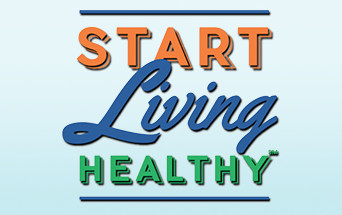What You Can Do
Whether you have diabetes or are trying to prevent diabetes, making certain lifestyle changes can improve your health.
Increase Physical Activity
Physical activity can help to control blood sugar and blood pressure, reduce cholesterol levels, and help control and maintain weight.
Experts recommend moderate-intensity physical activity of at least 150 minutes per week (30 minutes on 5 or more days of the week). Some examples of moderate-intensity physical activity are walking briskly, mowing the lawn, dancing, swimming, or bicycling.
Eat a Healthy Diet
Diets rich in vegetables, whole grains, lean meats, poultry, fish, beans, and nuts and low in saturated fats, trans fats, salt (sodium), and added sugars are optimal for maintaining a healthy weight.
Guidelines for healthy eating:
- Eat a variety of vegetables, especially non-starchy vegetables
- Choose whole foods rather than processed foods
- Limit added sugars and refined grains such as white bread
Maintain a Healthy Weight
A combination of regular exercise and a healthy diet is the best way to keep from getting overweight or obese. Be wary of fad diets that restrict certain nutrients and portion sizes that are too large.
Quit Smoking
If you do not smoke, don’t start. If you do smoke, try to stop. Need help quitting? Call the Hawaii Tobacco Quitline at 1-800-784-8669, or talk with your health care provider.
Work With Your Health Care Provider
Regular visits to a health care provider can help you manage any health conditions. To help detect any complications from diabetes, people with diabetes should work with their health care provider to be screened regularly. Your provider may use hemoglobin A1C tests, blood pressure screening, a lipid panel, diabetic foot exam, dilated eye exam, and depression screening.
See If You Are At Risk For Prediabetes
Take the Diabetes Risk Test at www.PreventDiabetesHawaii.com and share the results with your doctor or health care provider and they can verify your results utilizing a simple blood sugar (glucose) test. If your doctor or health care provider determines that you have prediabetes, they can recommend you enroll in a group lifestyle change program, such as the Diabetes Prevention Program (DPP). Joining a DPP can help you to prevent or delay the development of type 2 diabetes.
I Have Type 2 Diabetes. Now What?
If you have type 2 diabetes, your doctor or health care provider will recommend making lifestyle changes that could help you manage your diagnosis. They may also recommend enrolling in a Diabetes Self-Management Education and Support (DSMES) program or Diabetes Self-Management Program (DSMP) to help you improve your condition. DSMES programs are covered by most insurance plans. DSMP programs are not covered by insurance, however they are usually available at low or not cost. Participation in DSMES often requires a doctor referral.



